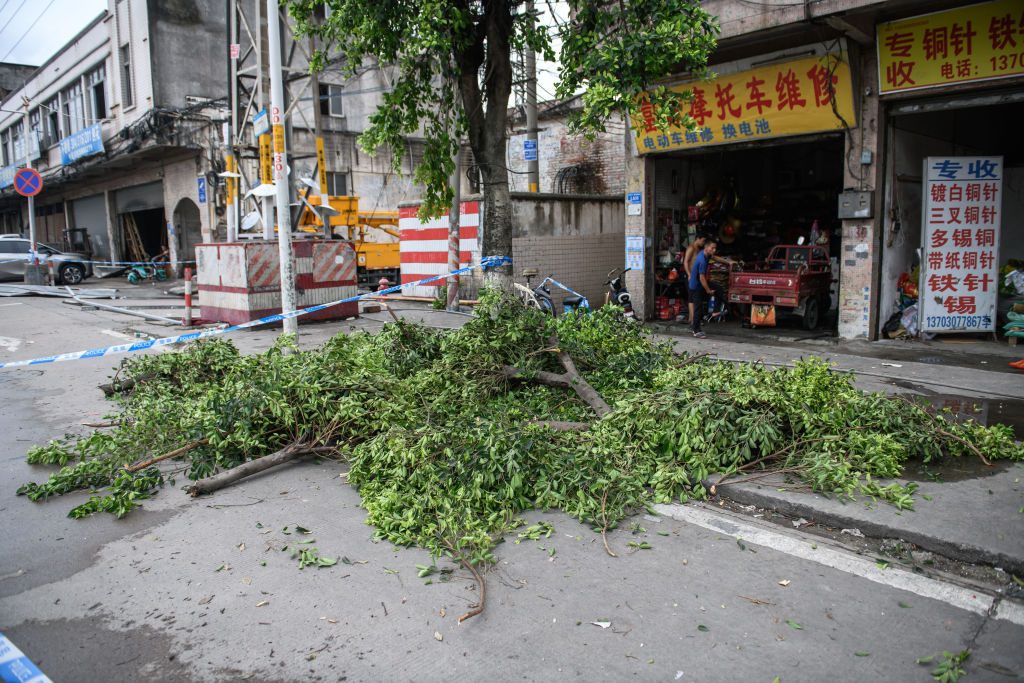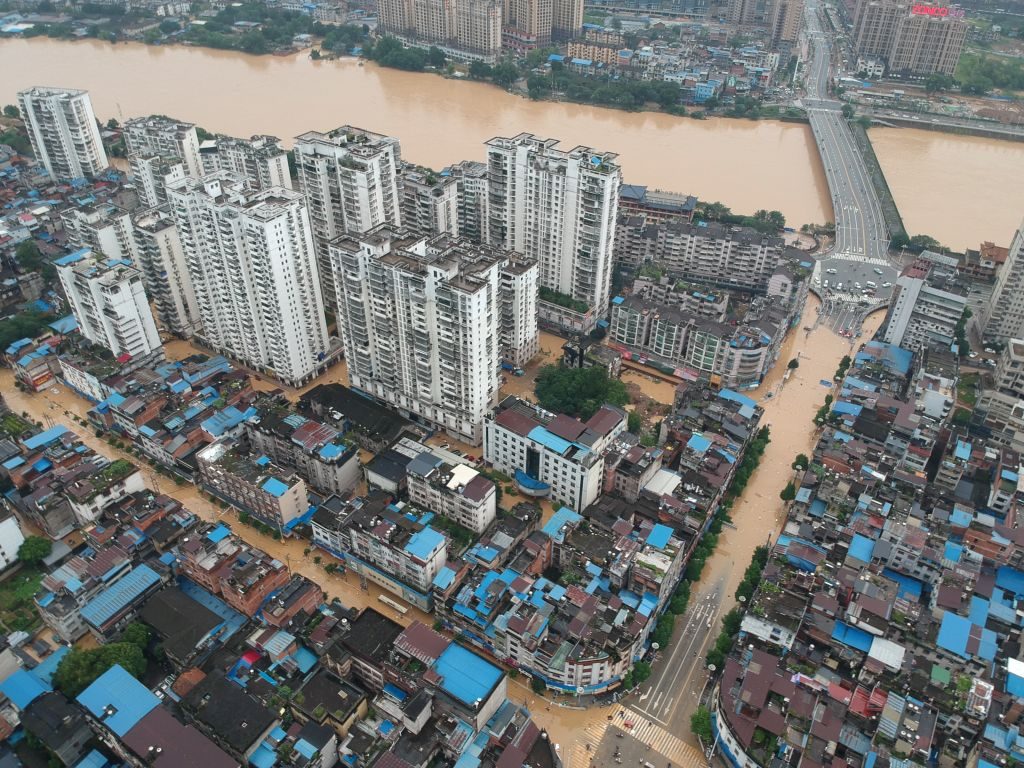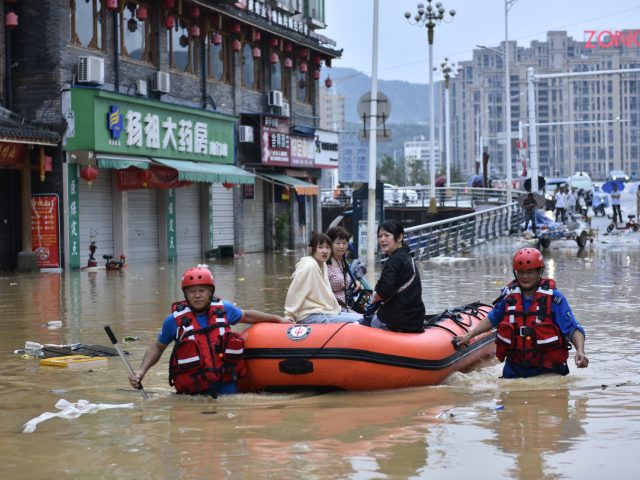China hit an unusual trifecta of natural disasters last week, experiencing torrential rains in the south, record-setting heat in the central and eastern regions, and a tornado slamming into the massive southern port city of Guangzhou.
Another Chinese city was hit by a tornado on Sunday.
Channel News Asia (CNA) called it a “rare convergence” of “extreme weather events” on Friday. The heat wave and torrential rains are expected to last well into this week.
“China is historically prone to floods, triggering landslides and swamping many acres of farmland. In recent times, it has grown even more vulnerable due to deforestation, the reclamation of wetlands and the storage of water for power generation and irrigation,” CNA noted.
The Chinese government does not like to discuss the negative effects of its policy agenda, so it is blaming “climate change” for the disaster trifecta. China is the world’s worst polluter, by a wide margin, but it loves to talk about climate change.

The trees are seen blown down by strong winds in Foshan, Guangdong Province of China on June 19, 2022. At about 7:00 on the same day, a tornado occurred in Nanhai District, Foshan. Houses and trees were damaged on the site. (Stringer/Anadolu Agency via Getty Images)

Aerial view of houses surrounded by flood water on June 19, 2022 in Jian’ou, Fujian Province of China. China’s Fujian Province has evacuated nearly 220,000 people for heavy rain and rain-triggered floods starting early this month. (Huang Jiemin/VCG via Getty Images)
CNA described the heavy rainfall in southern China as the worst of its extreme weather issues, and residents of the region knew it was coming:
Media in Guangzhou reported dangerous water levels with high waves in the broader Pearl River Basin, prompting the central government to dispatch flood prevention workers.
Since May, precipitation in the Pearl River Basin – a vast river system encompassing Guangdong and parts of Guangxi, Jiangxi, Hunan, Guizhou and Yunnan – has risen to its highest since 1961, according to state media on Friday, citing China’s National Climate Center.
In Fujian province north of the basin, authorities warned that recent record-breaking rainfall would persist into next week, posing a high risk of natural disasters.
Videos on Chinese social media revealed streets underwater, cars and even houses swept away by flood waters, and gigantic mudslides. At least five fatalities were reported when a house collapsed.
Torrential rain has been a seasonal feature of life in southern China for a very long time – the locals refer to it as “dragon boat” weather, a reference to the Dragon Boat Festival holiday in June – but this year’s rainfall is setting 60-year records. Last year’s rainy season was arguably more devastating, as a shocking number of people drowned in subway tunnels that suddenly filled with water.
The tornado in Guangzhou was more of a surprise than the heavy rainfall, plunging over 5,400 residents into darkness and leaving part of the city strewn with wreckage and fallen trees.
“I saw the tornado swirling on the road and heading towards the metro. The wind was strong, the sky was black and there were flashes of lightning. It was really scary,” one eyewitness said.
Another close range footage of the Guangzhou tornado, as far as we know, this tornado hit overhead, commercial buildings and did major damage to transmission of the subways. pic.twitter.com/g5yRNnox9P
— Eric Wang (@Ericwang1101) June 16, 2022
Another tornado hit the southern city of Foshan on Sunday, wreaking havoc similar to what Guangzhou experienced. Fortunately, no deaths were reported from Foshan.
Southern Chinese city of Foshan in Guangdong Province is hit by tornado pic.twitter.com/ck0vwFrtkU
— TRT World Now (@TRTWorldNow) June 20, 2022
China’s northern heatwave caused a record-breaking surge in demand for electric power in some areas, and utility officials predicted consumption would remain at unprecedented highs through most of the summer.
“Dear aunties, please turn down the air-conditioning setting by one degree in the summer and save more than 6% in electricity,” county officials patronizingly urged residents in eastern Anhui province.
On Friday, China’s National Meteorological Center renewed its “yellow alert” for high temperatures in various provinces where triple-digit heat was expected. (The Chinese system has two higher alert levels, red and orange.)
The yellow alert advisory urges residents to avoid outdoor activities during the afternoon and instructs workers to take extra precautions against heat and dehydration.

COMMENTS
Please let us know if you're having issues with commenting.